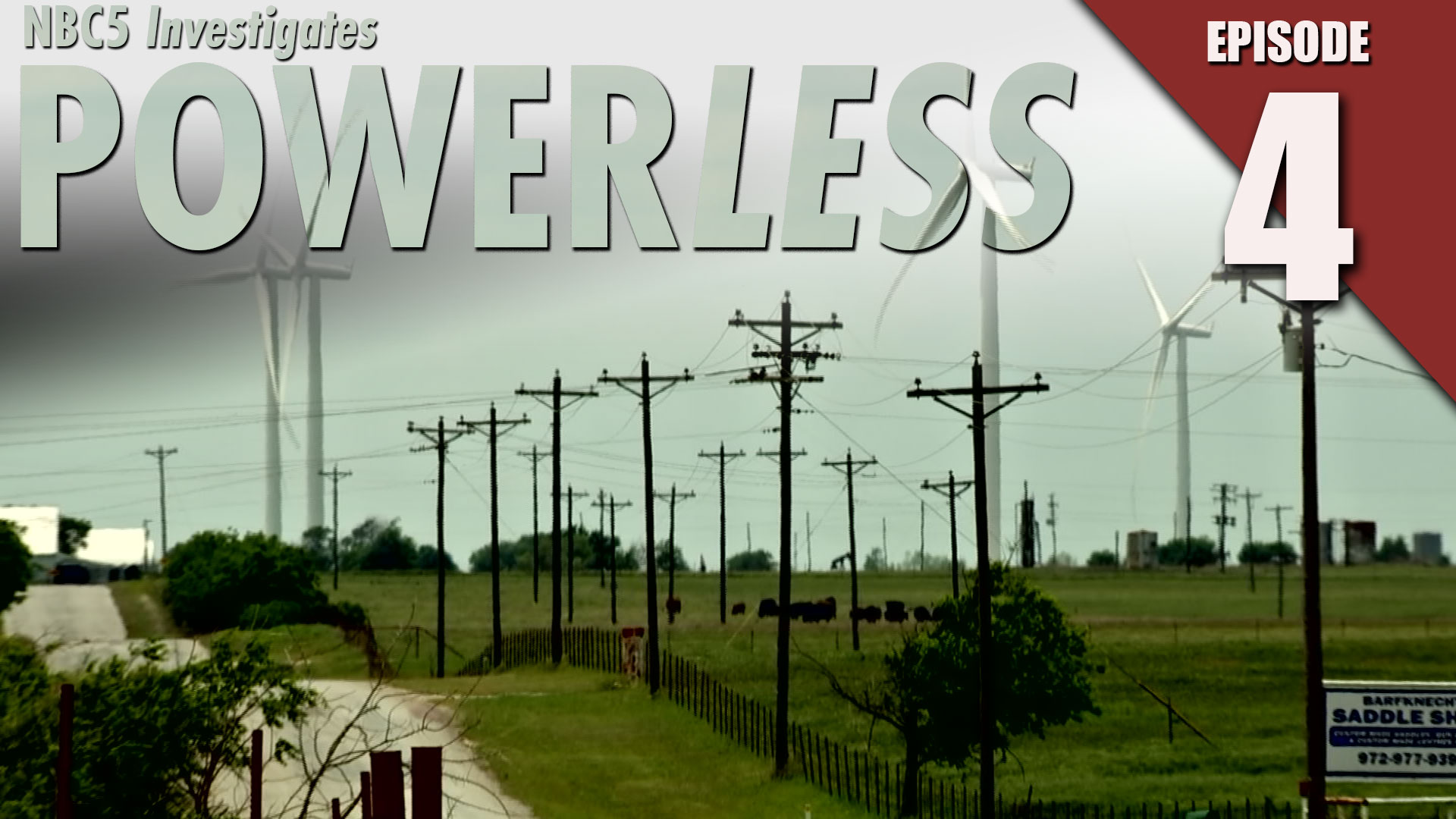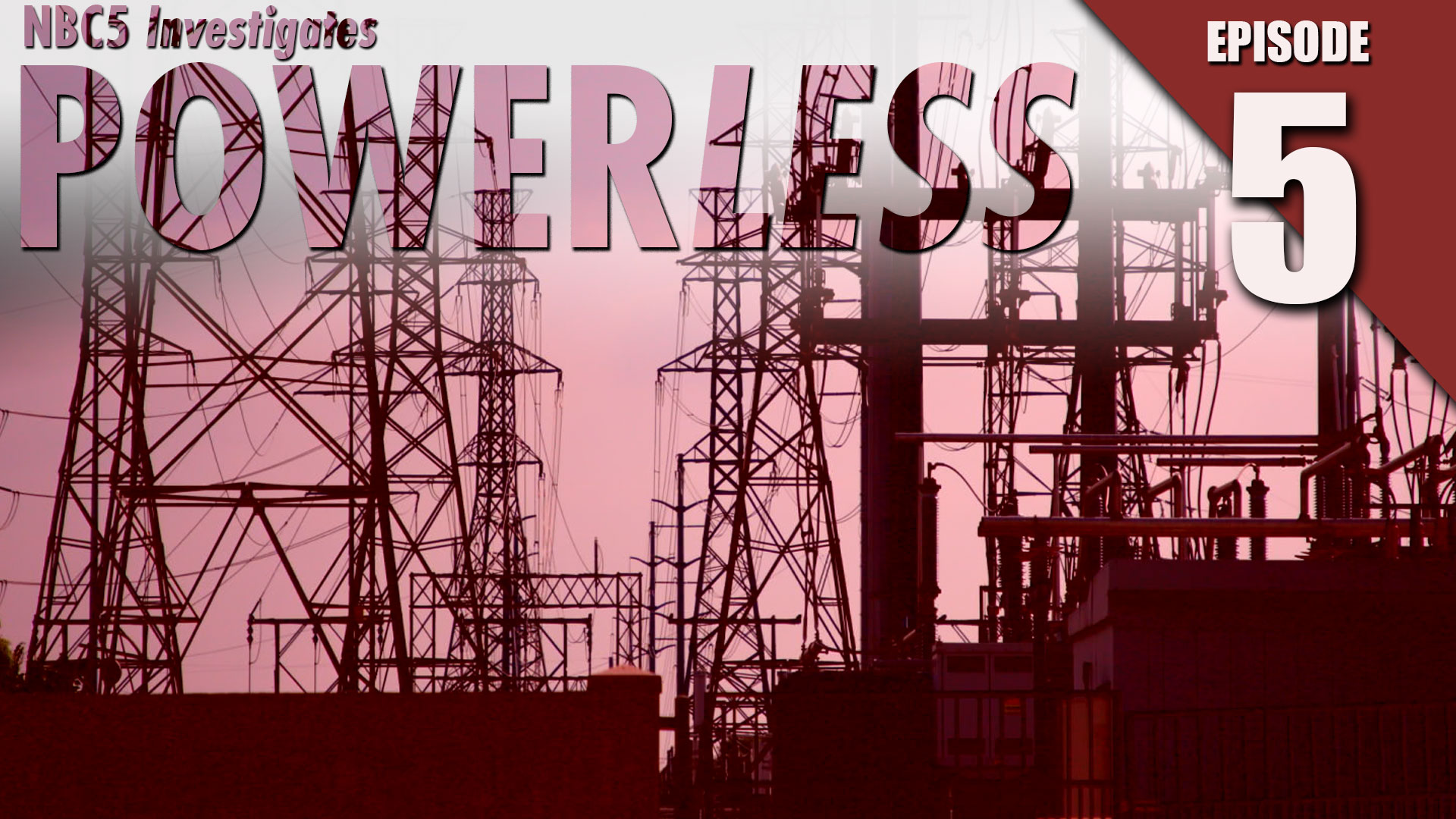What to Know
- ERCOT asking Texans to conserve power all week due to power generation facilities being offline.
- ERCOT said failures at thermal plants forced generators offline to make immediate repairs.
- The peak demand record for June is 69,123 MW; more than 70,000 MW of demand was reached around 3 p.m. Monday, breaking the record.
An energy emergency Monday did not lead to rolling outages but the Electric Reliability Council of Texas continues to ask Texans statewide to conserve power through Friday as the amount of generation currently available may not be sufficient to meet the demand.
"We have issued a Conservation Alert asking consumers and businesses to reduce electric use immediately," the agency said Monday.
ERCOT, the agency that manages Texas' power grid, said nearly 12,000 MW of forced generation outages combined with potential record electric use for the month of June has resulted in tight grid conditions and the need to conserve power.
Get DFW local news, weather forecasts and entertainment stories to your inbox. Sign up for NBC DFW newsletters.
Digital Series: Powerless
During a conference call Monday afternoon, ERCOT Senior Director of System Planning Warren Lasher said they are seeing a concerning stream of thermal plants going offline for forced outages due to failures at those facilities that required immediate repairs. ERCOT officials likened the failures to a car suddenly experiencing a flat tire.
Thermal plants generate electricity by converting heat energy electricity, typically by heating water and using steam to turn a generator. Lasher said those generation facilities have thousands of components that can break and require repairs.
Generation owners told ERCOT that the number of outages should decrease throughout the week as the repairs are made.
ERCOT Vice President of Grid Planning and Operations Woody Rickerson said they would be doing a thorough analysis with generation owners to determine why so many units are out of service. Rickerson added that it was unusual to have this many thermal generators out at this time of year.
Each year ERCOT conducts site visits at some, but not all of, the more than 650 power generation facilities. On Monday, Lasher told NBC 5 Investigates' Scott Friedman that they had conducted visits at 20 plants to date and would visit 11 more in the next couple of weeks. Four of the plants that went offline Monday were among those visited this spring by ERCOT, Friedman reported.
ERCOT reported at about 3 p.m. a current demand of more than 70,000 MW, a record for June. By 4 p.m. that number dropped back below 69,700 MW and, more importantly, operating reserves increased to more than 3,600 MW. Earlier in the day, the demand was forecasted to climb to nearly 75,000 MW before calls for conservation were made.
The level of available power reserves Monday dropped below 2,900 MWs and was lower than ERCOT’s worst-case scenario forecast for this summer.
In their annual summer assessment, Lasher said ERCOT looked at a number of scenarios that included the loss of 3,600 MW of power due to forced outages. The actual forced outages Monday were three to four times that amount and only about 500 MW of the 12,000 MW of outages reported Monday were planned.
Adding to the trouble Monday, ERCOT said wind output was expected to be 3,500 to 6,000 MW between 3 p.m. and 9 p.m. and that the output was roughly 1,500 MW lower than what is typically available for peak conditions. Wind output is expected to increase as the week goes on.
Earlier this spring the grid manager assured Texans they would have sufficient power to meet the peak summer demand. With capacity expected to be 86,862 MW this summer, there should be plenty of power available to meet the 77,144 MW of peak demand expected this summer -- as long as generation facilities are able to stay online.
The demand for power is only going to increase. In 2022, ERCOT expects to have nearly 100,000 MW of capacity to meet an expected demand of 78,855 MW.
With summer still six days away, the conservation alert issued Monday is the second from ERCOT since the deadly February winter blackout that cut power to millions for nearly a week and led to the deaths of at least 151 people.
On a mild spring day in April, a day without freezing or triple-digit temperatures, ERCOT stunned Texans when they sent out an alert urging energy conservation. Like Monday, the threat in April was also due to insufficient capacity due to a large number of plants being offline for maintenance. The maintenance being performed in April, however, was seasonal, meaning it was planned by generators to adequately prepare their facilities for the summer. ERCOT said then that conservation was necessary because temperatures on April 13 were a little warmer than forecast leading to an unexpected increase in demand.
A report released last month by the North American Electric Reliability Corporation warned Texas was at an “elevated risk” of energy shortages and potential power outages this summer.
Shortly before the call for conservation by ERCOT late Monday morning, wholesale prices of electricity began to skyrocket before settling back to a more normal price Monday afternoon. See the latest prices here.
Calls for Conservation Lead to Criticism of ERCOT, Legislative Changes
During the regular legislative session, Texas lawmakers passed several significant bills related to ERCOT and the grid, including restructuring the board, creating mandates to "weatherize" power plants for extreme temperatures and ordering the creation of an alert system designed to notify Texans more quickly when conservation is necessary.
The new laws were designed to repair vulnerabilities of the state's power grid that were exposed during February's winter storm.
Texas State Sen. Kelly Hancock (R-North Richland Hills, Dist. 9), who authored a number of bills during the session related to ERCOT and the power grid, downplayed the maintenance issues Monday but said there was good news related to the grid.
"Things got tight for a few hours with certain plants offline for maintenance preparing for the intense July and August heat and wind and solar producing below 10,000 MW, but there’s good news coming out of today," Hancock said. “First, the legislature pushed for improved communication, and today’s ERCOT conservation alert did its job. Second, this summer’s reserve margin still looks strong. And lastly, the legislation signed into law last week will go a long way toward improving the balance of Texas’ generation portfolio and keeping our grid stable long-term."
At the end of the session, Gov. Greg Abbott (R) declared the reforms "fix all of the flaws" that caused February's deadly winter blackout.
But not everyone is convinced the grid isn't still vulnerable. Dallas County Judge Clay Jenkins said Monday the issues related to the power grid were not solved during the most recent legislative session despite the claims made by the governor and legislators.
"They missed an opportunity in the legislature and what I hope will happen is when they have the special session they will focus on doing what is necessary to have the sort of a power grid that can withstand heat and cold," Jenkins said. "It’s going to get hotter this summer and this is just the beginning of the summer, you know? It’s June and we’re already talking about rolling blackouts."
POWER CONSERVATION TIPS
- Set your thermostat to 78 degrees or higher – every degree of cooling increases your energy use by 6% to 8%.
- Turn off lights and pool pumps and avoid using large appliances like ovens, washing machines, and dryers.
- If you don’t need something, ERCOT asks you to turn it off and unplug it if possible.
Find more energy-saving tips at ercot.com/txans.
From new records revealing the causes of the massive February power outages to new interviews revealing potential solutions, NBC 5 Investigates gets to the bottom of the state's power problems in the ongoing streaming series "Powerless," available here.
Other Reports From NBC 5 Investigates
NBC 5's Ken Kalthoff and Scott Friedman contributed to this report.







